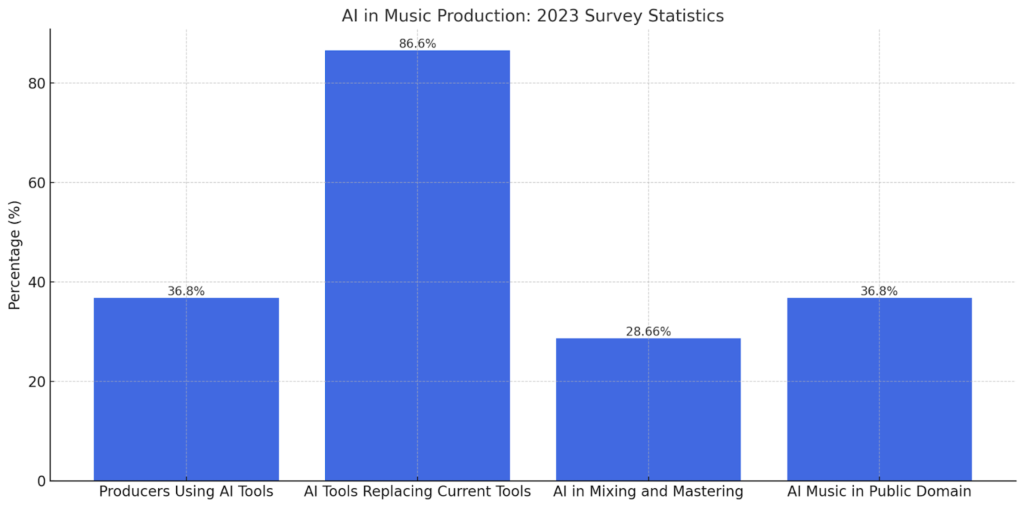
Welcome to the dynamic world of Bitcoin, a realm where the lines between technology and economy blur to create a new paradigm. Bitcoin, once known merely as a digital currency, has transcended its initial purpose to become a versatile tool in the modern economic landscape. This article embarks on an exploration of Bitcoin’s multifaceted journey, delving into how it has grown from a concept of digital money to a robust economic staple with diverse applications.
Bitcoin’s journey is a testament to the power of innovation and adaptability. No longer confined to the realms of cryptocurrency exchanges and investment portfolios, Bitcoin’s underlying technology is now finding groundbreaking applications across various sectors. From revolutionizing payment systems to offering new solutions in digital identity verification, Bitcoin is showcasing its capacity to impact and transform multiple aspects of the modern economy.
The goal of this article is to provide a comprehensive exploration of the innovative use cases of Bitcoin. We aim to demonstrate its evolving role and increasing importance in the global economic landscape. By examining its journey, its current applications, and potential future developments, we shed light on how Bitcoin is not just changing the way we think about digital currency but also reshaping economic interactions and systems at large.
The Journey of Bitcoin: From Digital Currency to Economic Staple
Bitcoin’s Origins and Growth: Tracing the Digital Currency’s Rise
The story of Bitcoin is one of groundbreaking ingenuity. Born in 2009 out of a whitepaper by an enigmatic figure or group known as Satoshi Nakamoto, Bitcoin was conceived as an alternative to traditional currencies. Its early days were marked by a cult following among tech enthusiasts and libertarians. However, as it overcame initial skepticism and regulatory challenges, Bitcoin experienced an unprecedented rise in value and popularity, drawing the attention of investors, businesses, and governments worldwide.
Evolving Perception of Bitcoin: Beyond Just a Currency
The perception of Bitcoin has undergone a significant transformation. Initially seen as a speculative digital asset, it is now being recognized for its utility in various economic functions. This change in perception is fueled by Bitcoin’s decentralized nature, its potential for secure and transparent transactions, and its ability to facilitate quick and cost-effective international payments. As understanding and trust in Bitcoin grow, so does its integration into mainstream economic systems.
How to Integrate Bitcoin in Your Business
Getting Started with Bitcoin: Preparing for a Digital Revolution
Businesses aiming to adopt Bitcoin must begin with a comprehensive understanding of cryptocurrency. The first step is educating yourself and your team about Bitcoin – its workings, market trends, and potential impacts on your business model. Next, assess your business’s technological readiness. Integrating Bitcoin requires specific software and hardware capabilities, including secure digital wallets and robust cybersecurity measures. Consider consulting with a financial advisor or a cryptocurrency expert to understand the legal and tax implications of incorporating Bitcoin into your business operations.
Implementing Bitcoin Payments: Integrating the Future of Transactions
To integrate Bitcoin payments, start by selecting a reputable cryptocurrency payment processor. These services facilitate Bitcoin transactions, converting them into your local currency to avoid the volatility associated with cryptocurrency. Next, integrate Bitcoin payment options into your online and physical stores. This integration often involves updating your point-of-sale systems and training staff on handling cryptocurrency transactions. Clearly communicate to your customers that Bitcoin is an accepted payment method, highlighting its benefits such as transaction speed and security.
Maximizing the Benefits of Bitcoin in Business: Strategic Growth with Cryptocurrency
Leveraging Bitcoin can give your business a competitive edge. Use Bitcoin to tap into new customer bases, especially those who prefer using cryptocurrency for its privacy and security benefits. Consider offering incentives for customers paying in Bitcoin, such as discounts or loyalty points. Bitcoin also allows for efficient cross-border transactions, opening up international market opportunities. Additionally, use Bitcoin’s underlying blockchain technology for improved supply chain tracking, enhancing transparency and efficiency.
Top 5 Innovative Uses of Bitcoin in the Economy
Bitcoin in International Trade: Revolutionizing Global Transactions
Bitcoin is transforming international trade by simplifying and securing cross-border transactions. Its decentralized nature eliminates the need for intermediaries, reducing transaction costs and time. Businesses can leverage Bitcoin to settle international deals efficiently, bypass currency exchange complexities, and mitigate the risks associated with currency fluctuations.
Enhancing Microtransactions with Bitcoin: Small Payments, Big Impact
Bitcoin is ideal for facilitating microtransactions – small, often online, transactions that traditional banking systems find costly to process. Content creators, gaming platforms, and online services can use Bitcoin to monetize their offerings, charging small amounts that would be impractical with conventional payment methods.
Bitcoin’s Role in Decentralized Finance (DeFi): Beyond Traditional Banking
Bitcoin is at the forefront of the DeFi movement, which aims to democratize finance by removing central authorities. By using Bitcoin, individuals and businesses can access a range of financial services – from loans to asset trading – on blockchain-based platforms, with enhanced security and without traditional banking restrictions.
Empowering Charitable Endeavors with Bitcoin: Enhancing Donor Trust
Charities and non-profit organizations are increasingly accepting Bitcoin donations. The transparency of Bitcoin transactions allows donors to track how their contributions are used, enhancing trust and accountability. Bitcoin also enables seamless international donations without hefty transaction fees, expanding the potential donor base for charitable organizations.
Bitcoin in Digital Identity Verification: The Blockchain Advantage
Bitcoin’s blockchain technology is revolutionizing digital identity verification. By creating decentralized and immutable records, blockchain can provide secure and efficient identity management solutions. This application is particularly useful in sectors like finance, e-commerce, and online security, where identity verification is crucial.
The Evolution of Bitcoin in 2023: A Multifaceted Economic Impact

The bar graph provides an overview of key highlights and trends of Bitcoin in 2023. It illustrates various aspects such as the market recovery percentage, the increase in Bitcoin’s market dominance, the low point of price volatility, the growth in the number of Bitcoin addresses, spikes in miners’ revenue, recovery in mining stocks, the popularity of Bitcoin Ordinals, and the trading volume of Bitcoin NFTs.
In 2023, Bitcoin has demonstrated a remarkable transformation, impacting various facets of the economic landscape. The year witnessed a significant market recovery with Bitcoin gaining over 160%, indicating a robust rebound from the previous bear market. Concurrently, Bitcoin’s dominance in the crypto market rose to over 52%, asserting its influence over the entire cryptocurrency ecosystem.
A notable trend in 2023 was the low volatility Bitcoin experienced around $29,000 in August, followed by a surge in the number of Bitcoin addresses, signifying continuous adoption and usage growth. This trend was accompanied by significant spikes in Bitcoin miners’ revenue, primarily driven by the popularity of Bitcoin Ordinals and the surging trading volume in Bitcoin NFTs, which surpassed $1.5 billion.
The year also saw an impressive recovery in Bitcoin mining stocks, with leading companies registering substantial gains. These developments collectively highlight Bitcoin’s growing versatility and its deepening integration into various economic sectors, far beyond its original purpose as a digital currency.
The Future Landscape of Bitcoin
Predicting Bitcoin’s Trajectory: Navigating Future Pathways
As we gaze into Bitcoin’s potential future, several developments and trends emerge. There’s a growing interest in Bitcoin as a mainstream financial asset, which could lead to increased adoption by institutions and individuals alike. The evolution of Bitcoin might also see enhanced scalability and efficiency through technological advancements like the Lightning Network. These improvements could solidify Bitcoin’s position not just as a store of value but also as a viable medium for everyday transactions.
Challenges and Opportunities Ahead: Striking a Balance
Bitcoin faces its share of challenges, including regulatory hurdles, market volatility, and concerns about its environmental impact. However, these challenges also present opportunities. For instance, the push for more sustainable mining practices could spur innovations in renewable energy use. Regulatory challenges might lead to clearer guidelines and greater stability in the cryptocurrency market, potentially attracting more investors.
Bitcoin’s Long-Term Economic Impact: A Paradigm Shift
Looking ahead, Bitcoin could significantly reshape global economic structures. It has the potential to provide an alternative to traditional banking, especially in underserved regions, thus promoting financial inclusivity. Bitcoin’s decentralized nature might also challenge and potentially transform the current centralized financial systems, leading to a more democratized economic landscape.
Some FAQs Answered On The Relevant Topic
How Does Bitcoin Contribute to Financial Inclusivity?
Bitcoin contributes to financial inclusivity by providing access to financial services for those who are unbanked or underbanked. Its decentralized nature eliminates the need for traditional banking infrastructure, allowing people from all parts of the world to engage in financial transactions with just an internet connection.
What Are the Environmental Impacts of Bitcoin Mining?
Bitcoin mining, known for its high energy consumption, has raised environmental concerns. The process requires significant computational power, leading to high electricity usage, often sourced from fossil fuels. However, there’s a growing trend towards using renewable energy sources, and innovations in mining technology are constantly improving energy efficiency.
How Secure Are Bitcoin Transactions?
Bitcoin transactions are highly secure, thanks to the robust blockchain technology they use. Each transaction is encrypted and added to the blockchain, making it nearly impossible to alter. However, users must safeguard their private keys and be cautious of security threats like phishing attacks.
Can Bitcoin Be Integrated with Existing Financial Systems?
Integration of Bitcoin with existing financial systems is possible and is gradually happening. Various financial institutions are exploring ways to incorporate Bitcoin and other cryptocurrencies into their offerings. This integration, however, is dependent on regulatory environments and the development of supportive infrastructure.
In conclusion, Bitcoin’s journey from a digital currency to a pivotal element in the modern economy illustrates its transformative power and versatile potential. From reshaping financial transactions to challenging traditional economic structures, Bitcoin stands at the forefront of a digital revolution. As it continues to evolve, navigating through challenges and seizing new opportunities, Bitcoin’s influence on the global economic landscape is poised to grow. This exploration encourages readers to not only understand but actively engage with the ever-changing world of Bitcoin, adapting to and shaping its future trajectory.
Eric Dalius is The Executive Chairman of MuzicSwipe, a music and content discovery platform designed to maximize artist discovery and optimize fan relationships. Alongside this, Eric hosts the weekly podcast “FULLSPEED,” discussing entrepreneurship with industry leaders. Eric also founded the “Eric Dalius Foundation” to award four scholarships to deserving US students. Follow Eric’s activities on Twitter, YouTube, Facebook, LinkedIn, Instagram, and Entrepreneur.com.
